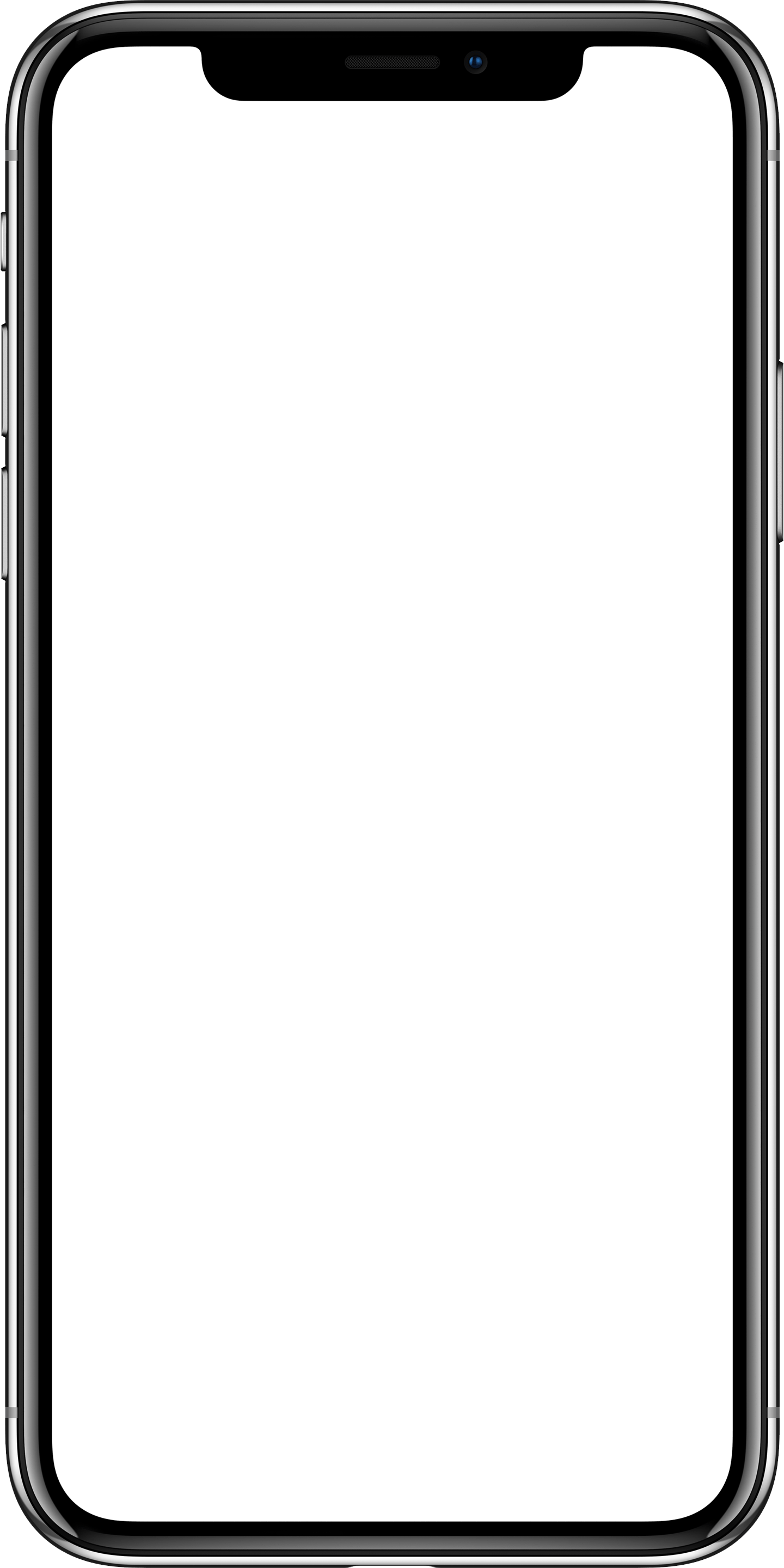

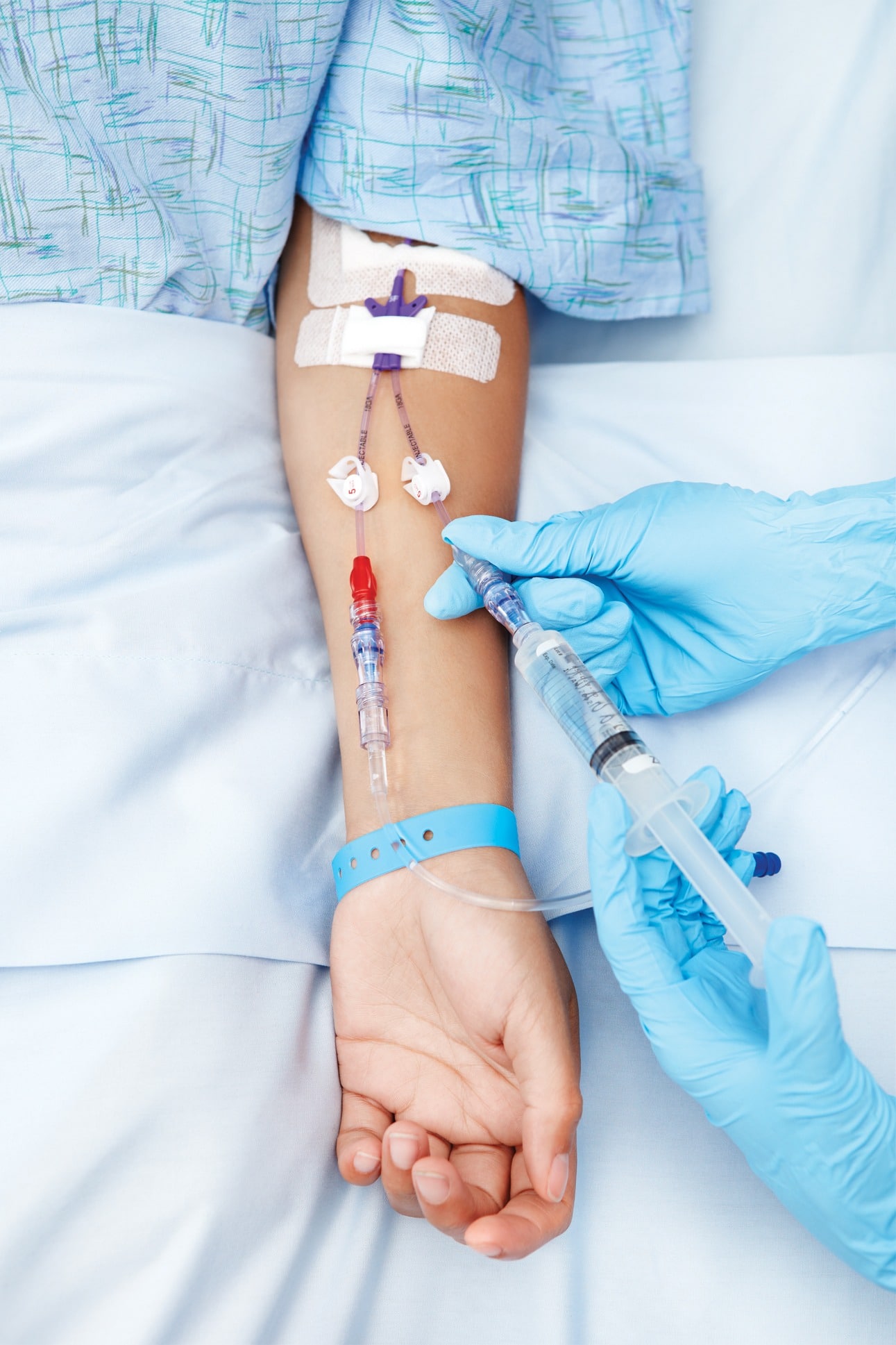
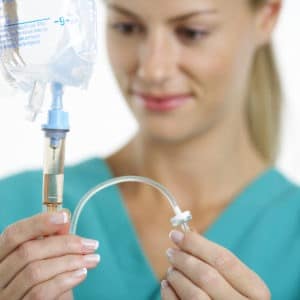
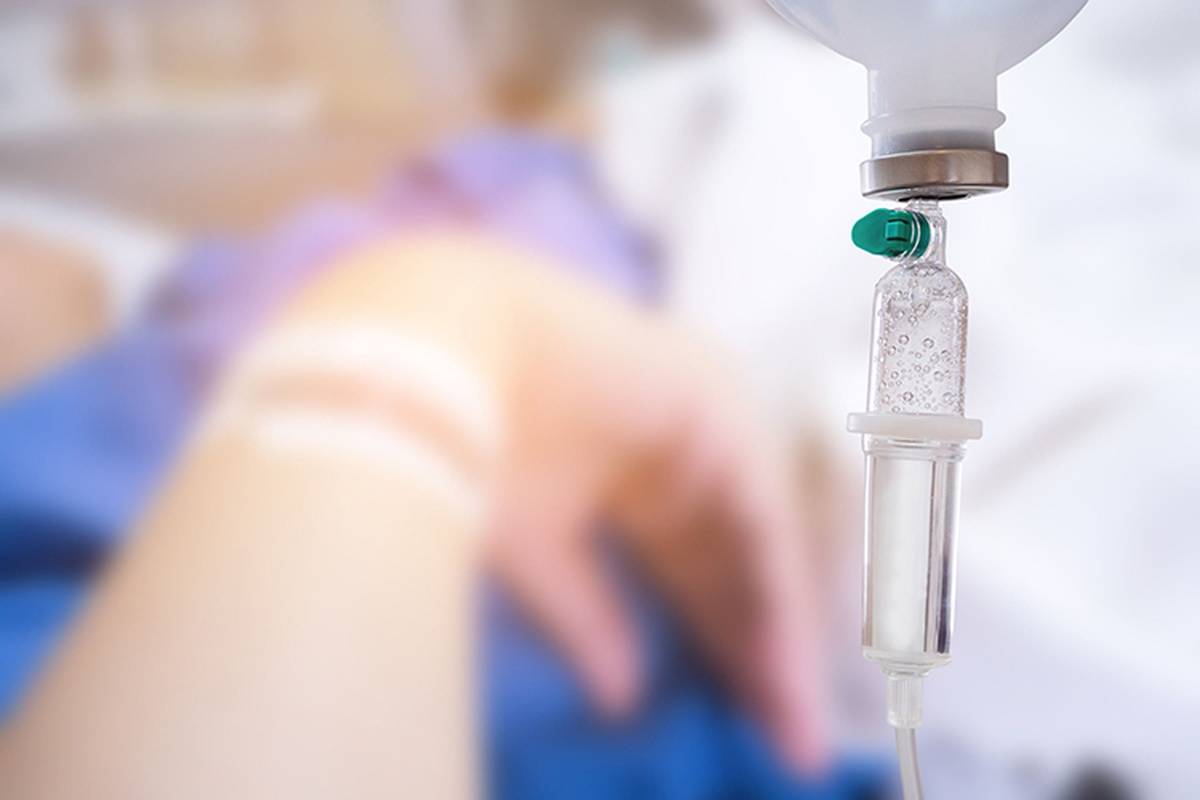

Hydration
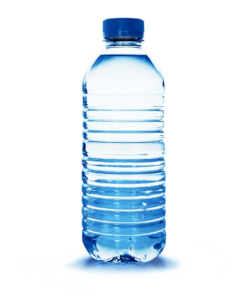
- Dehydration
The Hydration IV targets symptoms of dehydration with a sufficient supply of saline fluid in the amount of 500mL to 1L. This therapy can last up to 45 minutes.
Myer's Cocktail

- Dehydration
- Restlessness
The Hydration IV targets symptoms of dehydration with a sufficient supply of saline fluid in the amount of 500mL to 1L combined with B complex, Vitamin C, Magnesium, and B12. This therapy can last up to 1 hour.
Superstar
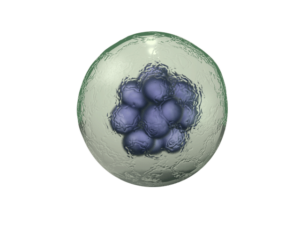
- Dehydration
- Fatigue
- Headache
- Weakness
- Muscle aches
- Stomach pain
- Joint pain
The Superstar IV targets symptoms of dehydration, headache, fatigue, muscle ache, stomach pain, joint pain, and weakness with a sufficient supply of saline fluid in the amount of 500mL to 1L combined with B complex, Vitamin C, Zinc, Magnesium, Glutathione, Taurine, B12, Zofran, Toradol, Pepcid, and/or Benadryl if requested. This therapy can last up to 45 minutes to 1 hour.
Ultimate Star
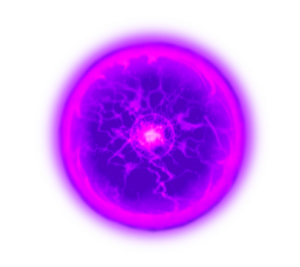
- Dehydration
- Fatigue
- Headache
- Weakness
- Muscle aches
- Stomach pain
- Joint pain
The Ultimate Star IV targets symptoms of dehydration, headache, fatigue, muscle ache, stomach pain, joint pain, and weakness with a sufficient supply of saline fluid in the amount of 1L combined with B complex, Vitamin C, Zinc, Magnesium, Glutathione, Taurine, B12, Zofran, Toradol, Pepcid, and/or Benadryl in a MAX DOSE if requested. This therapy can last up to 1 hour.
How Our IV Therapies Can Help With Post Surgical Recovery
- Vitamin C to help regenerate collagen to the trauma area
- Vitamin C to build the immune system
- Glutathione for tissue repair and reducing inflammation
- Saline to provide electrolytes lost during sedation
- Zinc for wound healing and immune system support
- B complex (B6) to reduce edema and inflammation
- B complex (B5) to help with scar tissues
High Dose Vitamin C, B, & A For Post Surgical Therapy
IV Vitamin Therapy aims to top up levels of important minerals and vitamins; nutrients such as zinc, selenium and vitamin B6 can maintain your immune system in the face of a serious shock to the system. Vitamins C and A are powerful antioxidants that fight free radicals. Vitamin C and zinc are also key factors in the production of collagen.
Vitamins and minerals are required by the body for almost every function, whether for normal maintenance or in times of increased need.
When should I start IV therapy?
If you have recently started surgery, specifically if it was emergency surgery, and you discover your recovery is not going as expected, then IV Vitamin Therapy will start providing valuable nutrients instantly. However, to get the most from this treatment, starting your IV Vitamin Therapy in advance of your surgery, even by just a couple of weeks, can ensure you’re not suffering from a nutrient deficiency that could undermine your recovery.
How To Book On Calendar
Book your request two ways
You can book your appointment directly on calendar (option 1) or submit a request form (option 2). You can use both options but only one is sufficient.
Select a service
Select a nurse in your area
Fill out the form with your contact information and address
We confirm your appointment via Square based on your schedule and the nurses availability
Patient(s) gives consent to the nurse to perform the IV therapy via JotForm
Relieve your symptoms and target your treatment objectives
Option 1: Request Appointment On Calendar
Select any service if unsure. We automatically confirm your request. We will pair you with a nurse that’s available in your area. Your nurse will reach out for introduction and consultation. Reserve all medical questions for your nurse when paired. Please include any important medical history in notes section. Please be prepared to sign consent for IV therapy. If you apply on calendar you do not have to submit a request form. We will not charge your billing method until completion of therapy. A $35 IV service fee is applied with every IV & IM therapy.
Option 2: Request An Appointment
After submission we will pair you with a nurse that’s available in your area. Your nurse will reach out for introduction and consultation. Reserve all medical questions for your nurse when paired. Please include any important medical history in notes section. Please be prepared to sign consent for IV therapy. If you apply on calendar you do not have to submit a request form. We will not charge your billing method until completion of therapy. A Same Day Service Fee ($35) is applied with every IV & IM therapy requested same day.

